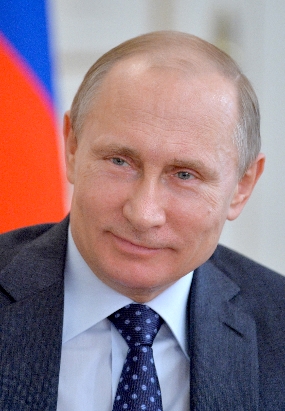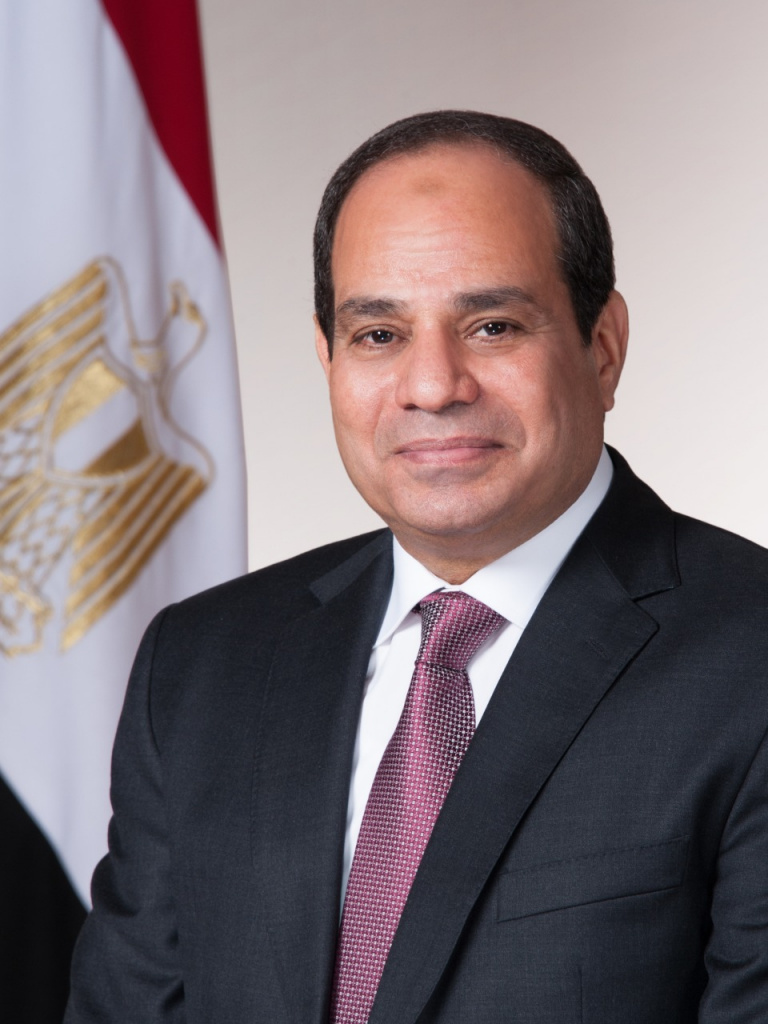AECAS INTERVIEW QUESTIONS AND ANSWERS WITH H.E. ABDULLAHI SHEHU YIBAIKWAL, AMBASSADOR EXTRAORDINARY AND PLENIPOTENTIARY OF THE FEDERAL REPUBLIC OF NIGERIA TO THE RUSSIAN FEDERATION

What do people in your country think of Russia?
This is an interesting question. I believe that in order to have a proper understanding of what Nigerians think of Russia, it is important to highlight the government-to-government (G2G) relations that have played a huge influence on the Nigerian perception of the Russian Federation.
As you may recall, Nigeria and Russia formally established diplomatic relations shortly after Nigeria gained its independence in 1960. Despite being a former colony of Great Britain, Nigeria insisted on maintaining relations with the West and with the former USSR. This foreign policy stance, which is centred on the principle of non-alignment, still guides our relations with all nation states and is a major contributing factor to the cordial relations that both countries still enjoy today. During Nigeria’s darkest chapter, which spanned three years (1967–1970), the material support provided by the USSR enabled the Federal Government of Nigeria to preserve the sovereignty of our dear nation.
Moreover, it should be noted that Presidents Olusegun Obasanjo and Dmitry Medvedev exchanged visits in March 2001 and June 2009 respectively. Similarly, H.E. Geoffrey Onyeama, the Honourable Minister of Foreign Affairs, visited his counterpart Sergey Lavrov in May 2017, while the former Senate President of Nigeria Senator Bukola Saraki led a parliamentary delegation to the Russian Federation in June 2018.
Furthermore, Nigeria and Russia have strong cooperation in the area of education. You might note that thousands of Nigerians have studied in Russia through private sponsorship and also through the Bilateral Education Agreement (BEA) between both countries, which usually accommodates up to a hundred students annually in various Russian higher educational institutions.
All of this has helped create a positive perception and image of Russia and Russians among Nigerians. In short, I think it can be said that Nigerians see Russians as friends, reliable partners and trusted allies.
Africa has been called the continent of the 21st century. Why do you think this is the case?
This question is a little bit more complex than the first. Indeed, Africa has been referred to as the continent of the 21st century. However, in all honesty, some Africans feel that the pre-eminence of the continent has been delayed by extenuating factors which I will discuss briefly.
There is no gainsaying that the transatlantic slave trade, which led to the exploitation and plundering of African resources, the legitimization of such plundering by Western powers, as well as the colonial struggle against the entrenched European powers in Africa are undeniable factors that contributed to the stalled development of the continent. It is therefore a testament to our resilience, determination and faith in ourselves that less than a century after most African nations gained independence from their erstwhile colonizers, we are now talking about Africa being the continent of the 21st century.
With an abundance of mineral resources, a young and vibrant population and a hospitable environment, Africa has quickly become an investment hub for several foreign companies. In the last decade, Africa was home to seven of the ten fastest growing economies in the world. Prior to the COVID-19 pandemic which saw a general decline in global economic productivity, the GDP of several African countries had been rising exponentially.
Additionally, there has been an increase in investments from African governments in information and communication technology which has seen the rise of several home-grown African companies. A prime example is a Nigerian company called Flutterwave, a global payments technology public limited company established in 2016. Since its inception, Flutterwave has processed USD 2.5 billion in payments and 100 million transactions, and is partnered with 50 African banks with over 1,200 developers that build on the platform. This would have been impossible without an environment enabling such a business that survives on electronic transactions to thrive.
Despite all this, I think that a major reason Africa can be called the continent of the 21st century is as a result of the ratification of the African Continental Free Trade Area (AfCFTA). Projections show that the agreement could lift over 30 million people out of poverty and raise the incomes of 68 million people. Overall, Africa’s exports are estimated to reach USD 560 billion (mostly in manufacturing) and boost incomes by USD 450 billion in 2035.
Likewise, a word must be said on Agenda 2063, which is the blueprint or roadmap on which Africa’s projected transformation is based. The agenda captures not only Africa’s aspirations – which include an integrated, prosperous and peaceful Africa, driven by its own citizens, representing a dynamic force in the international arena – but more importantly, outlines the framework and flagship programmes to achieve such aspirations.
Finally, let me quote the renowned Patrice Lumumba who said “Africa will write its own history, and it will be, to the north and to the south of the Sahara, a history of glory and dignity.” Africa is the continent of the 21st Century and beyond.
What are the opportunities for Russian entrepreneurs in your country?
Let me start by saying that one of the greatest advantages that investment in Nigeria can offer to Russian entrepreneurs is the availability of a steady market. Indeed, with a population of over 216 million people, most of whom are within the productive age brackets, Nigeria stands out as a major market in Africa. Taking into consideration the ECOWAS Protocol on Free Movement of People and Goods and the African Continental Free Trade Area (AfCFTA) agreement, Nigeria is undoubtedly the gateway to the African market. Therefore, products and services of Nigerian origin can leverage these policies to access the entire African market.
Here, allow me to highlight the fact that for any foreign investor or entrepreneur to fully benefit from investing in Nigeria, they will need to localize their businesses in such a way that the products are either produced or assembled in Nigeria. This will provide the company with full access to West African and African markets as a whole, in accordance with the provisions of the ECOWAS Protocol and the AfCFTA agreement respectively.
In summary, numerous opportunities in Nigeria await Russian entrepreneurs including in the areas of agriculture, solid minerals, oil and gas, renewable energy, healthcare, ICT and manufacturing.
There is a perception of serious risks to doing business in African countries, is this really the case?
This is not the case at all. It will interest you to know that according to the United Nations Conference on Trade and Development (UNCTAD)’s World Investment Report 2022, “Foreign Direct Investment (FDI) to African countries hit a record USD 83 billion in 2021”, which “was more than double the amount recorded in 2020, when the COVID-19 pandemic weighed heavily on investment flows to the continent.” The report further stated that “the largest holders of foreign assets in Africa remained European countries, led by investors in the United Kingdom (USD 65 billion) and France (USD 60 billion).
In the same vein, Chinese companies have entered almost all African markets. Today there are more than 1,000 of them operating in Africa; some one million people of Chinese descent reside in the continent. Many of these Chinese companies in Africa are privately owned, while others are wholly or partly state-owned. Within this framework, Chinese companies have a great degree of freedom to operate in Africa on market terms, in addition to being backed by Chinese investment capital on favourable terms.
Without doubt, the risks associated with investing in Africa are quite minimal and they are manageable. In fact, risks are everywhere, but the ability to turn these risks into opportunities is what matters and this is what distinguishes an entrepreneur from an ordinary business owner.
What does your country expect from Russia? In any field
The answer is quite simple: mutual cooperation in strategic fields such as defence and security, mining, oil and gas, agriculture and banking.
Besides, Nigeria needs Russian technology to boost its industrialization drive, just as Russia needs Nigeria as a market for its industrial products and military equipment.
Indeed, Nigeria can continue to serve as an important trade partner with Russia, due to its rich natural resources, all of which will provide ample opportunities for Nigeria to diversify its export markets.
You might recall that the Ajaokuta Steel Mill in Nigeria was built with the support of the USSR in the late 1980s. The complex, which consists of about 43 plants, was 95% complete by the time the Russian company, Tyazhpromexport (TPE) left Nigeria. This gigantic project is critical to the industrialization of Nigeria, yet it has remained moribund. As Russia is looking towards Africa for strategic partnerships, the Russian government may consider assisting Nigeria through a government-to-government (G2G) partnership to resuscitate this project. President Muhammadu Buhari had already requested Russia’s cooperation on this issue during a bilateral meeting with his counterpart President Vladimir Putin on the sidelines of the First Russia–Africa Summit held in Sochi in October 2019, but the process has not been completed.
What is your wish for Russians discovering your country and the African continent as a whole?
To my Russian friends, I will say explore the continent with an open mind. Africans, similarly to Russians, are hospitable people with each country on the continent offering a unique experience. Nigeria has both the largest population and economy on the continent. There are several business opportunities to explore and take advantage of. There is also an abundance of tourist sites to visit in all regions of Nigeria. Nigerian cuisine is renowned for its exquisiteness, our traditional attires are elegant and our way of life is peaceful and modest. We will be pleased to receive more Russians in Nigeria, and for them to view our country as a home away from home.


